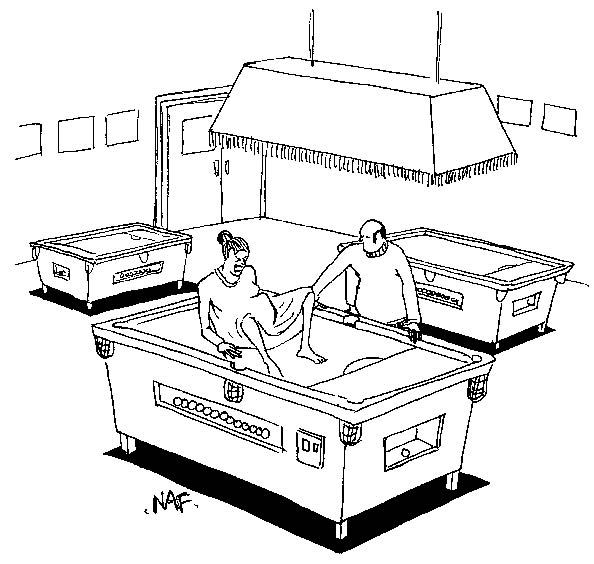Big changes are happening to the airwaves, part of the frenetic technological revolution that’s been unleashed by the development of a digital language.
Big changes are happening to the airwaves, part of the frenetic technological revolution that’s been unleashed by the development of a digital language. Radio, against expectations, is proving itself a vital force in these fast-moving times, because it’s flexible, adaptable and still compelling. The human voice, the imagination of sound, will endure when perhaps TV will fade out, evolving into another kind of internet exchange.
Wireless itself now means something quite different from those first crystal receivers, but nothing it seems can kill off that intimate connection between the person behind the microphone and the ear of the listener. In this time of cuts and more cuts, though, which of the BBC’s stations will still be around in 2021?
Radio 1 has just given itself a huge boost to its argument for survival by raising £2,406,648 for Comic Relief through the efforts of Chris Moyles and Comedy Dave, its breakfast-show hosts. They stayed on air way beyond the bacon-and-eggs, calling for donations and putting themselves in the Guinness Book of Records by staying awake and in the studio for 52 hours of non-stop chat. Their conversation by the end was pretty dire. I made the mistake of tuning in at 6.30 on Friday morning to find out whether they had lasted through the night and heard him and the team burbling on about their bowel movements, or rather lack of them. For a moment I thought I must have pressed the wrong button and had wandered across to Smooth or Classic FM and was overhearing one of those creepy lifestyle ads, this time for Senokot. You might think that Moyles would have been conditioned not to speak of such things on a station aimed at the under-25s. But there’s no denying the value of raising so much money (even if the final amount seems less impressive when set against the number of listeners to the show: more than 7 million).
Over on 4, the big news is the launch next weekend of Radio 4 Extra. Will the new digital Home Service pass the Home Counties’ test?
Its launch coincides with the death of Radio 7, killed off for lack of listeners and lack of commitment by the powers-that-be. The new station has been designed to rise out of its ashes, dumping the unpopular (and truly awful) CBeebies programmes for children, and focusing instead on 7’s success with reviving classics from the huge Radio 4 archive.
But it won’t just be comedy reruns. In a huge coup for 4 Extra, many of the best programmes in the 69-year run of Desert Island Discs have at last been released for public access so that you’ll be able to find out what’s been the most popular ‘luxury item’, and how many times Frank Sinatra’s ‘My Way’ has been played. DID is a series that long ago became boring, perhaps it always was, its format designed not to unseal celebrity from its clingfilm wrap but rather to conceal it still further. But those early programmes from the 1940s and 1950s might have a fascination in showing us just how much our tastes have changed (or not changed).
If that hasn’t sold the new digital-only station to you, perhaps you’ll be tempted by the allure of Ambridge Extra? We’re promised backstage (or rather backmike) gossip about Eddie, Brian, Lilian and co. in a series of specially written ‘extra’ episodes. Juicy appetisers such as a repeat of the first on-air kiss of David and Ruth have been lined up to tempt ready-made fans of the soap to Extra’s digital fare.
The heart sinks. Is this the ‘added value’ we’ve been promised? At the moment, I hardly dare tune in at 7.03 in the evening, just in case Jolene jumps into the shower with Kenton in a rerun of that previous attempt by the Ambridge scriptwriters to outdo Hitchcock. Do we really need to hear any more of Jolene’s squelchy kisses (gross) or Kenton’s gruesome smooth talk? If 4 Extra is to carve out an identity it surely needs to do more than just leach out the most listened-to bits of Radio 4. This will only weaken 4’s stature and share of the listening world.
Back on 4 the new Controller continues to implement her policy of making the network more international, by giving its listeners ‘a greater understanding of stories as they unfold’. In the specially commissioned Letters from the Arab World five writers from North Africa and the Middle East reflected on the events of the past few weeks in their home regions. Hisham Matar, the Libyan novelist, in a fictional letter between friends from an earlier revolt in Tripoli, reminded us, ‘We always discover that we knew more than we thought we knew.’ A valuable reminder that we should listen to what we know to be true but so often allow to be submerged beneath those too-easy conditioned responses: what else could we do? What would you have me do?






Comments